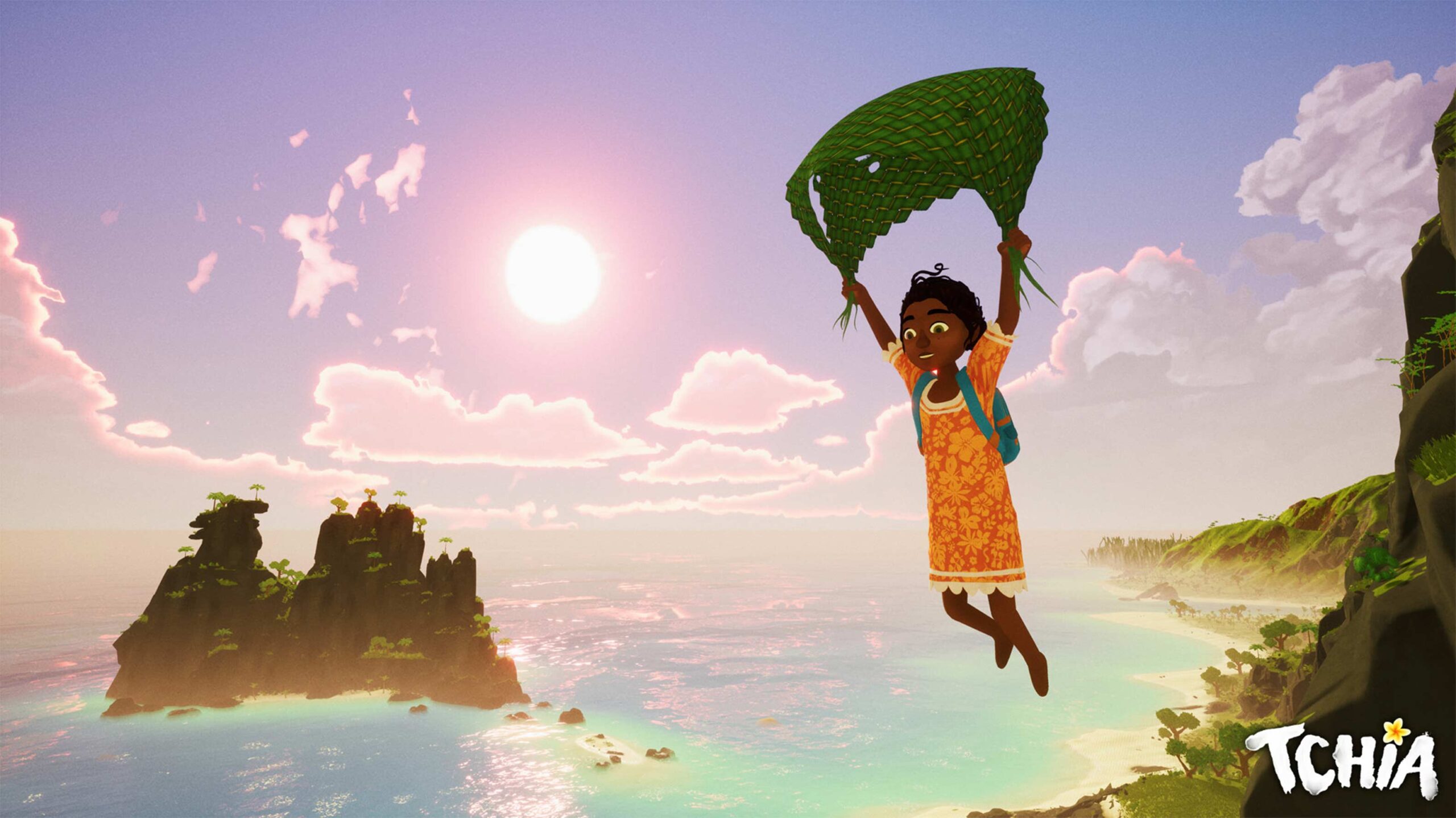
At the 2023 The Game Awards, Tchia won Games For Impact.
Awaceb, the Montreal-based developer behind the New Caledonia-set action-adventure game about a young girl attempting to rescue her father, wasn’t in attendance, so PlayStation indie boss Shuhei Yoshida read a brief acceptance speech on behalf of co-founder and director Phil Crifo. When you also consider how the show was widely criticized for giving little time to developers in favour of ads and celebrities, it becomes quite likely that many viewers sadly know little about Tchia or its creator.
As it turns out, though, Awaceb has a remarkable history that makes it stand out from many of the other players in Quebec’s booming game development scene. That’s because Crifo was actually born and raised in New Caledonia, the French territory comprised of dozens of South Pacific islands. He recounts fond memories of exploring his home with co-founder Thierry Boura, which would later inspire them to make games.
“It was a very safe, light-hearted childhood,” says Crifo. “We could just, from a very young age, go about our day and just explore the neighborhoods, explore the city, the islands, and then we would go on trips with our respective families, either on a boat or hiking in the different mountains and different biomes you have in the country. I guess it’s a similar childhood experience as you would have in other places in the world, but there was a sort of freedom and safety that went with being in a remote and small place.”
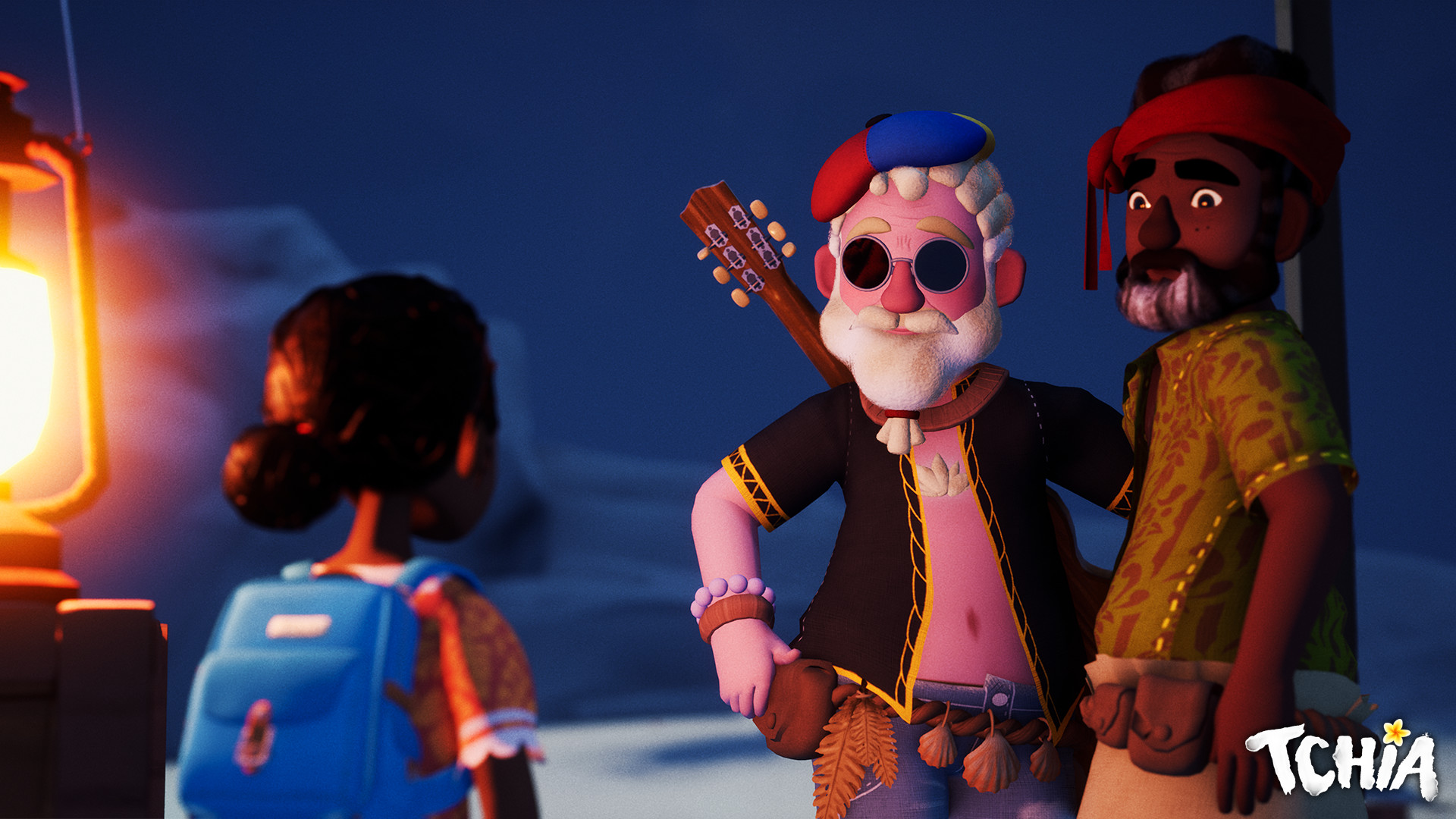 Eventually, he would go to France to study cinema and animation while Boura remained in New Caledonia to pursue computer science. Those complimentary art and technical skill sets eventually led them to reunite in Bordeaux to launch Awaceb. But they “just kind of ended up there,” he notes, and in 2022, they eventually wanted to establish their roots elsewhere. “Montreal has always been a hub for video game development, especially indie game development, so it was a really exciting prospect.”
Eventually, he would go to France to study cinema and animation while Boura remained in New Caledonia to pursue computer science. Those complimentary art and technical skill sets eventually led them to reunite in Bordeaux to launch Awaceb. But they “just kind of ended up there,” he notes, and in 2022, they eventually wanted to establish their roots elsewhere. “Montreal has always been a hub for video game development, especially indie game development, so it was a really exciting prospect.”
Relocating across the world is a daunting prospect in any context, and it was an especially big undertaking for Awaceb considering it was, at the time, in the final stretch of development of Tchia. But ultimately, it all worked out, with players admiring the infectious and palpable love for New Caledonia that was on display. Clearly, Crifo and Boura made the right call in marrying the beautiful locales of their homeland with the hands-off, marker-free exploration mechanics of The Legend of Zelda: Breath of the Wild, including expending stamina for free climbing and soaring over terrain with a glider.
In terms of the former, it all boiled down to recapturing those feelings of carefree adventure that they had when they were young.
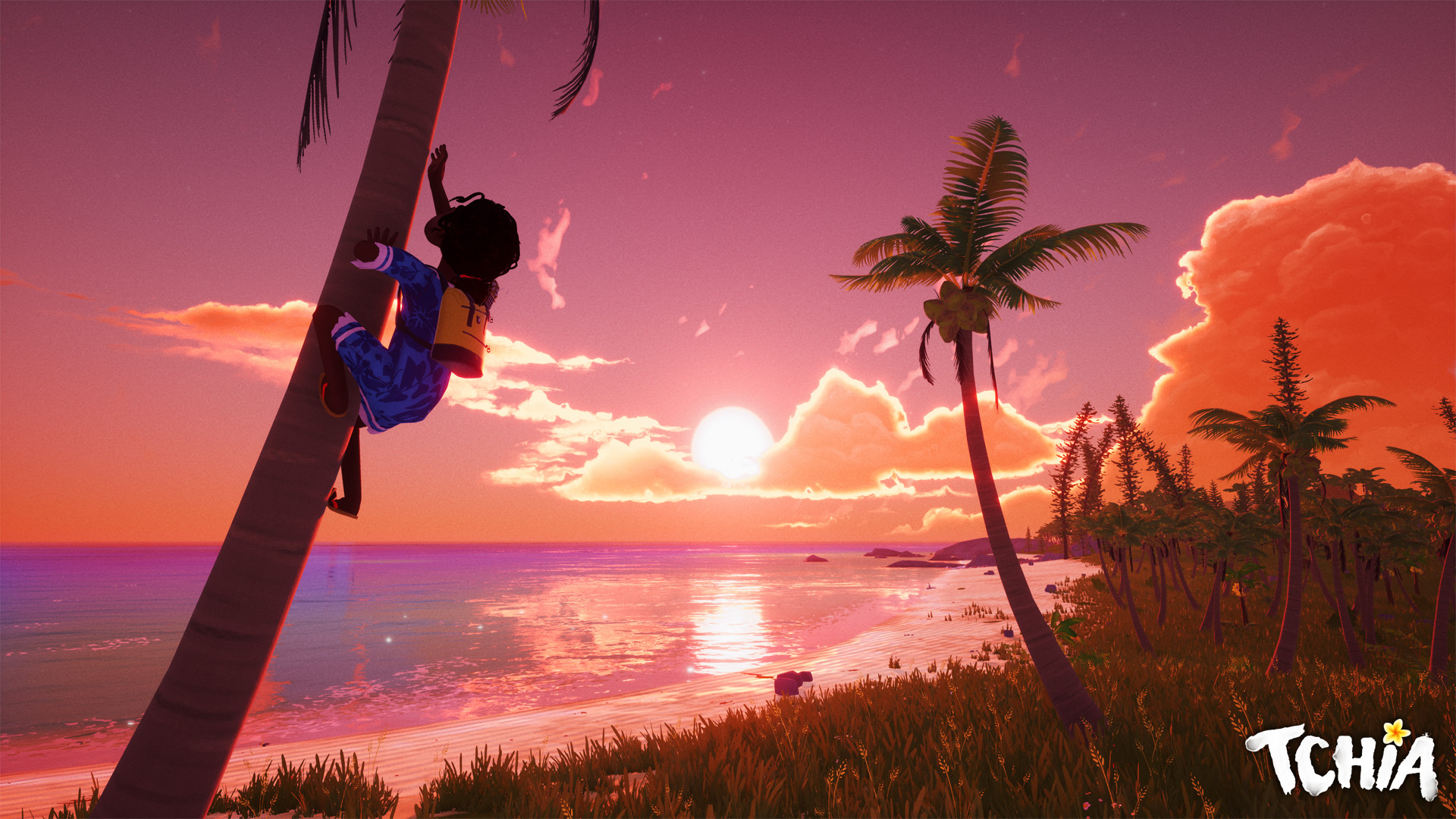 “You could tell a story about New Caledonia that’s focused on the political tensions, the social tensions, the hardships of living on a remote island — there are many things you could tell. But what I felt deep inside my heart, just growing up there and living as I was becoming an adult, I feel way more connected to the wonder and the innocence of being a kid there rather than all the weight and the more complicated feelings you can have towards the place when you actually become an adult,” he says. “So I decided to tap into that and celebrate the island through its beauty, the landscapes, the landmarks, the biomes, the flora and the fauna, and show New Caledonia through the prism of childhood wonder and lightheartedness and innocence.”
“You could tell a story about New Caledonia that’s focused on the political tensions, the social tensions, the hardships of living on a remote island — there are many things you could tell. But what I felt deep inside my heart, just growing up there and living as I was becoming an adult, I feel way more connected to the wonder and the innocence of being a kid there rather than all the weight and the more complicated feelings you can have towards the place when you actually become an adult,” he says. “So I decided to tap into that and celebrate the island through its beauty, the landscapes, the landmarks, the biomes, the flora and the fauna, and show New Caledonia through the prism of childhood wonder and lightheartedness and innocence.”
Wanting to hone in on that sense of childlike wonder also made it a natural fit to have Breath of the Wild-style exploration without a bunch of different markers and indicators and icons on a map telling you where to go. “You want the game to feel like a toy box — you want everything to be physical and tactile,” he says. “You want to feel like you’re playing with toys, basically, and I think that’s probably why we have so much in common with Zelda — that initial inspiration is about childhood and what it feels like to be a kid and exploring.”
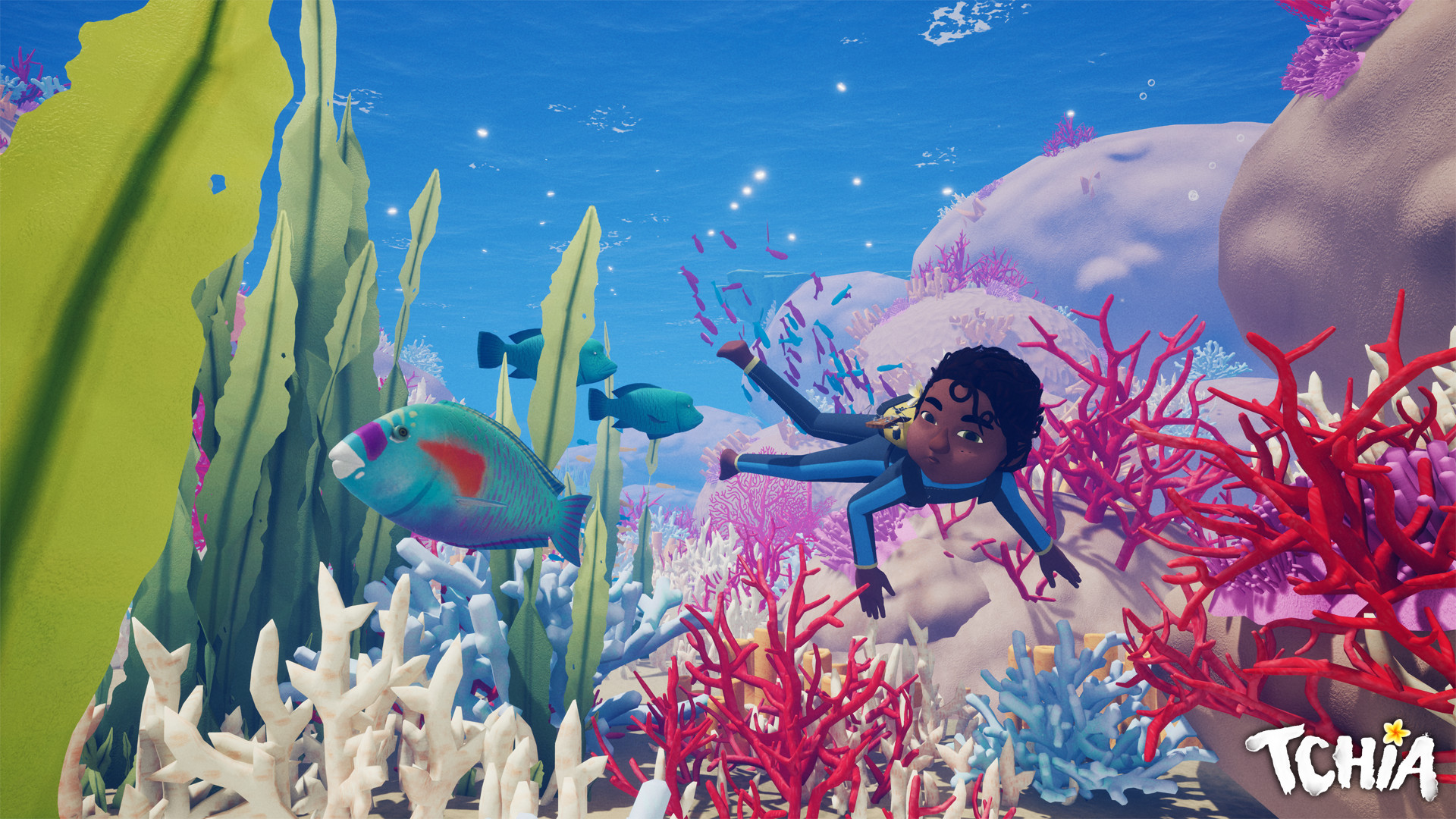 That’s not to say Tchia is just a Breath of the Wild clone — far from it. Using the Nintendo game’s mechanics as a baseline, Awaceb has opened up exploration in many ways, including a raft with which you can sail between the many islands of New Caledonia. But the key gameplay difference, which is inspired by New Caledonian folklore about shapeshifting, is the soul-jumping mechanic. As the titular hero, you can possess and control animals like birds, turtles and lizards, as well as inanimate objects like tires or fruit. This means you can do everything from flying high or diving underwater as animals to launching yourself forward as a lamp to explode and damage enemies.
That’s not to say Tchia is just a Breath of the Wild clone — far from it. Using the Nintendo game’s mechanics as a baseline, Awaceb has opened up exploration in many ways, including a raft with which you can sail between the many islands of New Caledonia. But the key gameplay difference, which is inspired by New Caledonian folklore about shapeshifting, is the soul-jumping mechanic. As the titular hero, you can possess and control animals like birds, turtles and lizards, as well as inanimate objects like tires or fruit. This means you can do everything from flying high or diving underwater as animals to launching yourself forward as a lamp to explode and damage enemies.
Naturally, Crifo says it was challenging to give players control over so many different creatures and objects, so they had to be measured in how they approached it all.
“I think we were smart enough upfront to build our systems in a kind of building block fashion where everything kind of stems from a core pattern. So let’s say for physical objects, you have presets that could be applied to many, many different objects, and then we’d be able to tweak on a case-by-case basis,” he explains. “We wanted to make a game that was generous to the player — like I mentioned, we want it to feel like a toy box. So when you open the toy box, you don’t want to find like three little pieces of Lego; you want to find a lot of stuff that you can play around. You want to have a feeling that there’s too much for you to enjoy — everything here is a toy.”
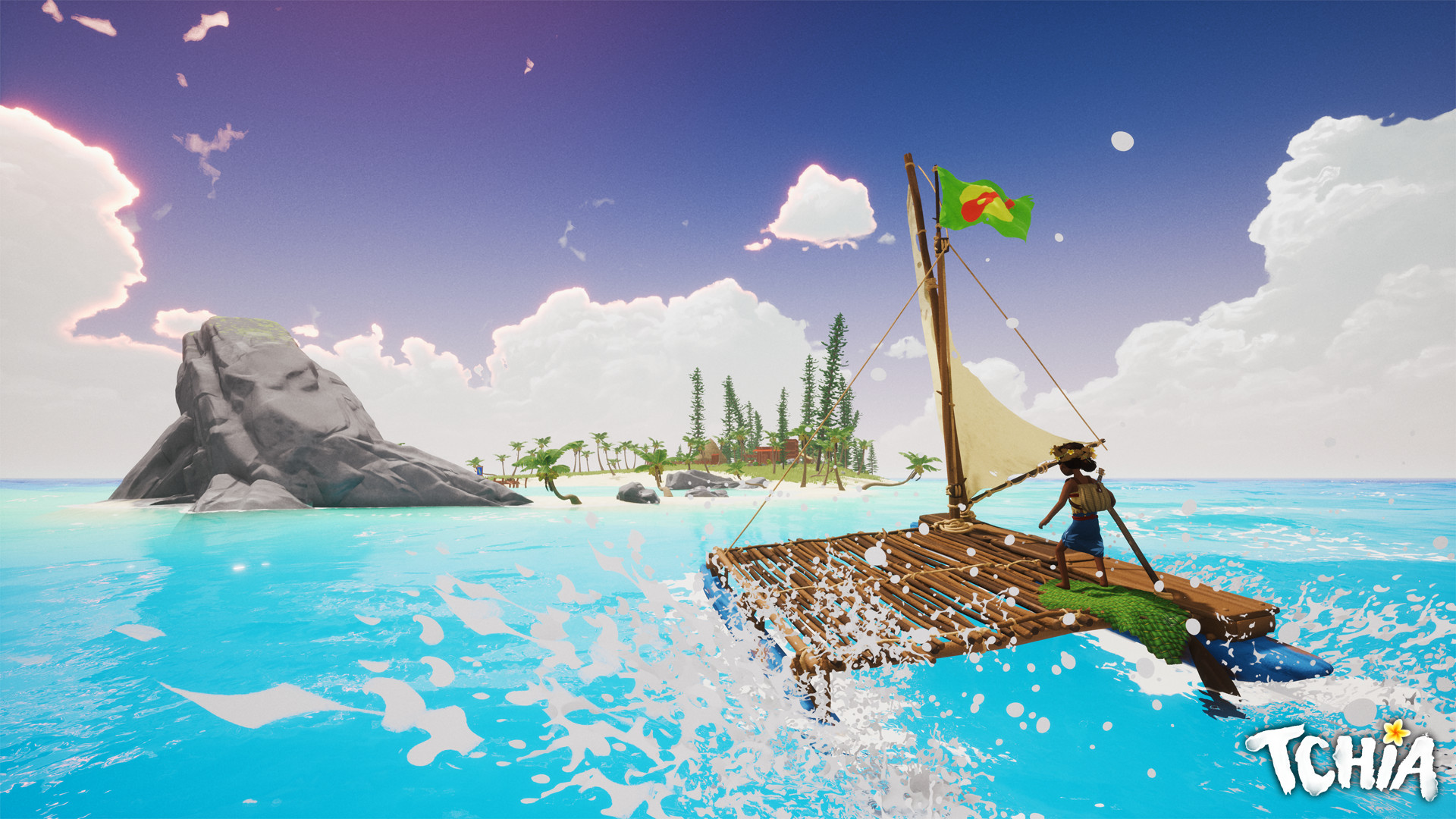 The cultural specificity within Tchia only further distinguishes it from the many other Zelda-inspired games on the market. To that point, Crifo and Boura even made a trip with the whole Awaceb team to New Caledonia so they could gain a better understanding of the archipelago. While there, they worked with local talent to record music and voice Tchia‘s characters, who speak a mix of French and Drehu, a language of the island’s Indigenous people. However, this commendable desire for authenticity did present its own challenges.
The cultural specificity within Tchia only further distinguishes it from the many other Zelda-inspired games on the market. To that point, Crifo and Boura even made a trip with the whole Awaceb team to New Caledonia so they could gain a better understanding of the archipelago. While there, they worked with local talent to record music and voice Tchia‘s characters, who speak a mix of French and Drehu, a language of the island’s Indigenous people. However, this commendable desire for authenticity did present its own challenges.
“Some people we worked with in New Caledonia, in choosing voice actors — some of them didn’t know what a video game was. It was super foreign as a concept, so it was a lot of sharing experience trying to convey what we were trying to do,” he explains.
Meanwhile, the kinds of groups that would help developers recruit talent in other countries weren’t present in New Caledonia. “You don’t really have agencies or anything like that to contact voice actors. It’s someone’s cousin who speaks the language and knows a friend who has done theatre somehow. So we kind of went door to door to find the right talent to work with us. It was a very hands-on, boots-on-the-ground approach to things.”
At the same time, he says having members of the team who weren’t from New Caledonia proved to be an asset. “It was very important for us from the get-go to strike a balance between making a love letter to the place that would resonate with us and the locals, but also be universal enough that anyone could understand and enjoy what we’re making, and any player in the game could pick it up and have fun,” he says. “So it was super important for us to build a team that was not 100 percent from New Caledonia, but to have people with different perspectives — different people from all around.”
In the end, Tchia did indeed reach people from all around, as well. Within two months, the game had already topped one million copies sold, which is no small feat for any game, especially one from an indie developer. And it’s not lost on Crifo how much more exposure Tchia would have had thanks to the team’s big win at The Game Awards, which garnered nearly 120 million global livestreams.
“This is such a big honour — we announced the game for the first time at the Game Awards [2020], and it was very surreal back then already to have our little piece of New Caledonia culture broadcast to millions of people — we couldn’t believe it. And so a couple of years after that, to actually have a proper Game Award for the game is the crescendo of that. It’s unbelievable to the team,” he says.
WE WON A GAME AWARD! pic.twitter.com/7k29acAUhJ
— Tchia (Awaceb) – OUT NOW ON STEAM🌴🦜🌸 (@awaceb) December 8, 2023
It means even more, he adds, because it’s the Games for Impact award.
“There was a very big question mark when we set out to make this game: how do you make something that is so personal and so unknown and so remote and so weird for the vast majority of people around the world? How do you reconcile being true to that and also making something that will be recognized by people all around? And so I think that award is a recognition of being true to yourself. We’re fortunate to be in an industry that recognizes that and celebrates that, so we’re immensely grateful and it keeps us motivated to do more and to stay true to the values we have as a studio and as a team.”
For now, the team is mostly taking a well-earned rest alongside preparing to launch the Steam version next March with new gameplay features. But the biggest goal, he says, is to continue to acclimate to Montreal.
🌺🌴Get ready… Tchia is making its way to Steam in March 2024!
BUT THAT’S NOT ALL! We’ve also got some amazing updates coming to ALL platforms 🧵 pic.twitter.com/i5r0YbscyU
— Tchia (Awaceb) – OUT NOW ON STEAM🌴🦜🌸 (@awaceb) November 30, 2023
“We’re working with people from Quebec, so we’re hiring a lot of people from Quebec and we’re kind of incorporating that into our own culture, and that’s super, super interesting. I think Quebec and Canadian cultures are super, super interesting — very different in many ways, but also very similar in many ways to French and New Caledonian culture as well,” he says. “The biggest thing for me is the people we get to meet and the people we get to work with — the relationships we build here are very exciting and surprising in the sense that we didn’t really know what to expect. But in a very good way because I think it’s bringing a lot to the studio and to us as people to just discover new ways to look at life and it makes it makes it super exciting to be here.”
This interview was edited for language and clarity.
Tchia is now available on PlayStation 4/5 and PC (Epic Games Store).
Image credit: Awaceb/Kepler Interactive
MobileSyrup may earn a commission from purchases made via our links, which helps fund the journalism we provide free on our website. These links do not influence our editorial content. Support us here.


